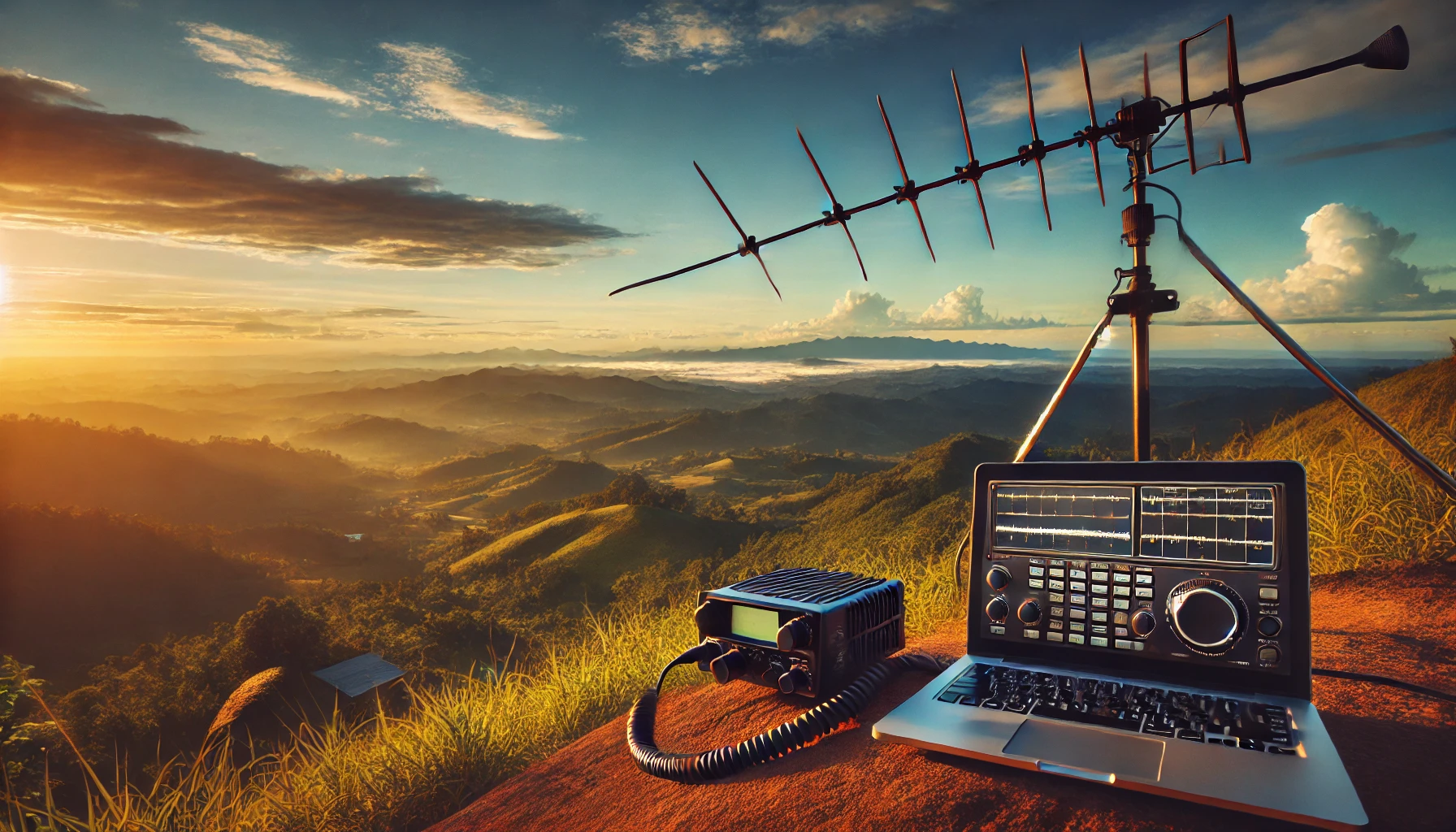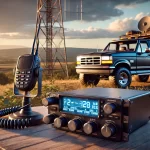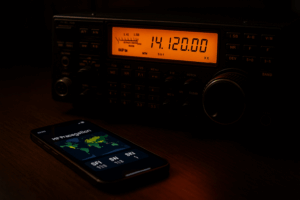Join our Exclusive Ham Radio Newsletter
Introduction
The Automatic Packet Reporting System (APRS) has been a staple of ham radio for decades, providing real-time position tracking, messaging, and telemetry for amateur radio operators. While APRS remains widely used, advances in technology and changing user needs have prompted discussions about its future. How will APRS evolve in the coming years, and what role will it play in modern ham radio?
The Current State of APRS
APRS operates primarily on VHF frequencies, utilizing the AX.25 packet protocol. It is widely used for location reporting, emergency communication, and data transmission. Despite its reliability, APRS faces challenges such as outdated infrastructure, congestion on the 144.390 MHz frequency, and a lack of innovation compared to newer digital communication modes.
Technological Innovations Shaping APRS
Several developments are influencing the future of APRS, including:
1. Integration with the Internet and IoT
With the increasing use of internet gateways (iGates), APRS is no longer confined to RF-only transmissions. Internet-based APRS, such as APRS-IS, extends its range and usability. Additionally, the integration of APRS with the Internet of Things (IoT) allows for more advanced applications, such as remote weather stations, sensor networks, and automated telemetry.
2. Advancements in SDR and Digital Modes
Software-defined radios (SDRs) and digital protocols like VARA FM and D-Star are reshaping amateur radio communication. These technologies offer higher data throughput, improved efficiency, and better error correction. Future APRS implementations could leverage these advancements to enhance data transmission and reduce congestion.
3. Satellite and High-Altitude APRS Expansion
APRS is no longer limited to terrestrial operations. The use of APRS on amateur radio satellites, such as the International Space Station (ISS) digipeater, is expanding its capabilities. High-altitude balloon projects also demonstrate the potential for APRS in scientific experiments and long-range tracking.
4. Mesh Networking and Off-Grid Communication
APRS can be integrated into mesh networks, allowing for decentralized, off-grid communication in emergency scenarios. Combining APRS with technologies like AREDN (Amateur Radio Emergency Data Network) could improve resilience and expand its applications beyond traditional tracking.
Challenges and the Road Ahead
While the future of APRS looks promising, several challenges must be addressed:
- Modernization of Infrastructure: Many APRS digipeaters and software systems need updates to support new capabilities.
- Frequency Congestion: The primary APRS frequency (144.390 MHz in North America) often experiences heavy traffic, limiting its efficiency in urban areas.
- User Adoption of New Technologies: Encouraging ham radio operators to adopt and develop APRS-compatible innovations will be crucial.
Conclusion
APRS has stood the test of time, proving its value in emergency communications, telemetry, and tracking. By integrating with modern digital technologies, expanding into satellite and IoT applications, and addressing congestion issues, APRS can continue to play a vital role in amateur radio. The future of APRS is not just about preserving a legacy system—it’s about evolving and adapting it to meet the needs of the modern ham radio operator.
Check our selection of Hamradio e-books
-
Sale!

Mastering APRS
Original price was: $59.99.$47.99Current price is: $47.99.
A Comprehensive Guide – ebook
⭐⭐⭐⭐⭐ -
Sale!

Mastering FT8
Original price was: $59.99.$47.99Current price is: $47.99.
A Comprehensive Guide to the Ultimate Digital Mode – ebook
⭐⭐⭐⭐⭐ -
Sale!

Stealth CB Antennas
Original price was: $59.99.$47.99Current price is: $47.99.
A Masterclass in Innovation and Disguise – ebook
⭐⭐⭐⭐⭐ -
Sale!

Ace Your Ham Radio Exam
Original price was: $59.99.$47.99Current price is: $47.99.
Technician, General, and Extra Class – ebook
⭐⭐⭐⭐⭐ -
Sale!

DMR for Hams
Original price was: $59.99.$47.99Current price is: $47.99.
The Ultimate Beginner’s Guide – ebook
⭐⭐⭐⭐⭐ -
Sale!

D-STAR, DMR & Fusion
Original price was: $59.99.$47.99Current price is: $47.99.
A Beginner’s Guide – ebook
⭐⭐⭐⭐⭐ -

Mastering the 6-Meter Band
$47.99
The Ultimate Guide – ebook
⭐⭐⭐⭐⭐ -
Sale!

Integrating Ham Radio with Modern Technology
Original price was: $59.99.$47.99Current price is: $47.99.
IoT, Raspberry Pi, and More – ebook
⭐⭐⭐⭐⭐ -
Sale!

D-STAR, DMR & Fusion
Original price was: $59.99.$47.99Current price is: $47.99.
Guia para Principantes – ebook
⭐⭐⭐⭐⭐ -
Sale!

Ham Radio for Preppers
Original price was: $59.99.$47.99Current price is: $47.99.
The Essential Survival Communications Guide – ebook
⭐⭐⭐⭐⭐ -
Sale!

Mastering Marine Radio
Original price was: $59.99.$47.99Current price is: $47.99.
A Sailor’s Guide to Confident Communication – ebook
⭐⭐⭐⭐⭐

Enter shop






